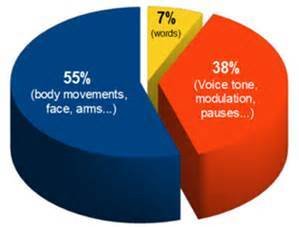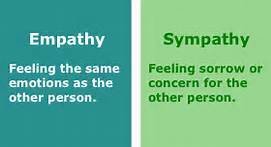Listening
Principals of Listening
Listening is accurately receiving and interpreting messages in the communication process. Even if the speaker gives the information in a clear and concise manner, if the listener is not paying attention, the message can be lost. Even when people think they are actively listening, they often are not as they are doing something else like looking at their phone or their mind is wandering and they are not focused on what the speaker is saying.
- Stop Talking~ You can't listen if you are talking
- Prepare to Listen~ Get yourself focused
- Put the speaker at ease~ show the speaker you are engaged.
- Remove distractions~ no daydreaming, playing on the phone, or anything else that takes your attention.
- Empathize~ Try to understand their point of view.
- Be Patient~ wit until they are done to react or respond.
- Avoid Prejudice~ Do not be to quick to judge another point of view.
- Listen to the tone~ You can hear a lot in tone and volume.
- Listen to more than just the words~ Try to find the ideas behind the words
- Watch for Nonverbal communication~ What are they saying with their eyes, face and body?
Non-Verbal Communication
Nonverbal communication can be a very useful tool in communication but often over looked. Much of what is being said is not found in words but instead, is unspoken because non-verbal communication is communication that has no words. The main component is body language. Some gestures could include, body movements, facial expressions, eye contact, posture, tone of voice, breathing patterns. Nonverbal communication can be used by the listen and the speaker. For example, if the listener has their arms crossed and they are looking away from you, they are probably uninterested in what you are saying, or at least that is what their body is saying. Therefore, it is very important to be aware of your body when communicating with others. This is one of the biggest drawbacks of online communication, there is no body language, or tone of voice. Because of this things can be easily read wrong and misconstrued. Non-Verbal communication is very important. Sometime, non-verbal communication is the only type of communication a child with special needs has and to communicate with them, you must learn to read their body language, and gestures. By paying attention to people teachers can communicate with not only the verbal children, but also the nonverbal children


Non-Verbal Communication
Co-Orientation
How individuals behave toward each other based on their perceptions of the other’s views and intentions regarding the object of mutual interest. We may respond one way to someone until we know where they stand on an issue and then respond completely different. I think students with special needs would have a hard time with co-orientation.
Principles for Effective Interpersonal Communication
-
Knowing your audience is very important. You will need to adapt your presentation methods according to your audience. You will constantly have to improvise. Your audience will not always understand you, so you are going to have to try new things to get the message across to them. STAY CALM!
-
As a speaker, you do not want to make anyone feel unsafe or confused. It is important to ask the listeners for feedback to make sure that they are understanding exactly what you are trying to say.
-
Being concise is key. Unnecessary information can lead the listener astray. If you are the listener, try to not interrupt. You will have a chance at the end to ask questions and put your thoughts in. BE POLITE!
-
Make sure that you send out a clear message that is complete in thought. If it is not complete it leaves room for people to make assumptions. If you are the listener, make sure you ask plenty of questions to allow you to understand the speaker thoroughly and completely.
- Be clear with your message or listen carefully to what is being said.
How to Improve your communication Skills
- Understand Communication~ this is a means to get a point across, so what are you wanting others to hear?
- Be confident~ Do not be afraid to say what you really think.
- Be Aware~ Say what you think but, do it in a way that is respectful to your audience. Know who that audience is.
- Engage your audience~ Make people want to know what you have to say.
- Make good eye contact~ Make each person think you are speaking to them.
- Use good non-verbal communication~ Use your body to help you get your point across but, make sure your body and words are saying the same thing. Do not send mixed messages.
- Speak clearly and with appropriate tone and speed.
- Use words correctly, if you do not know what the word means, find out or do not use it.
- Be emotionally aware~ understand yourself, understand your audience and build good relationships.
- Be a good listener~ being a good listener is just as important if not more important than being a good speaker.
Empathy
This is understanding where someone is coming from because you have been where they are or experienced what they are experiencing. You can put yourself in their shoes, because you have walked in those shoes.
Sympathy
Sympathy is acknowledging another's struggles and hardships. Though you may not have experienced them yourself, you can appreciate their emotions and offer them comfort and assurance. It is about understanding others.

How this relates to special Education
I think it is very important to teach good communication skills to everyone but, possibly more important for students with special needs. Depending on what disability they have, communication may be a hard task for these students. They often speak without taking others feelings into consideration. They just say it like it is. At the same time, some struggle to communicate at all whether it is because they choose not to or can't. We need to help these students find their voices and then teach them how to use them appropriately. For those that cannot communicate we need to help work on non-verbal communication. It is also important to be careful with sympathy and empathy when it comes to special needs students. It is ok to understand their struggles and sympathize with those but, they do not want us feeling sorry for them.
Listening
By ataft4482
Listening
- 710



